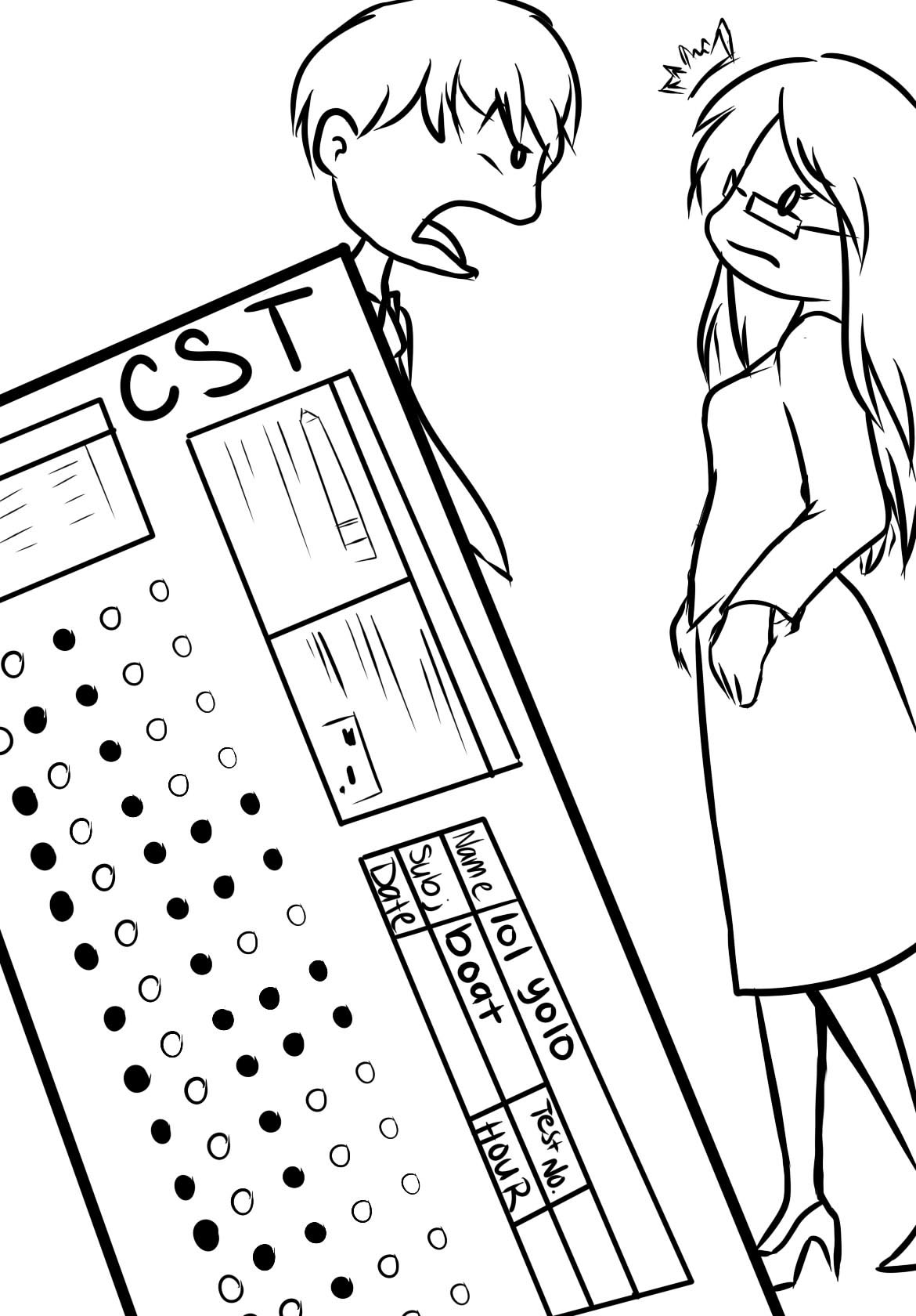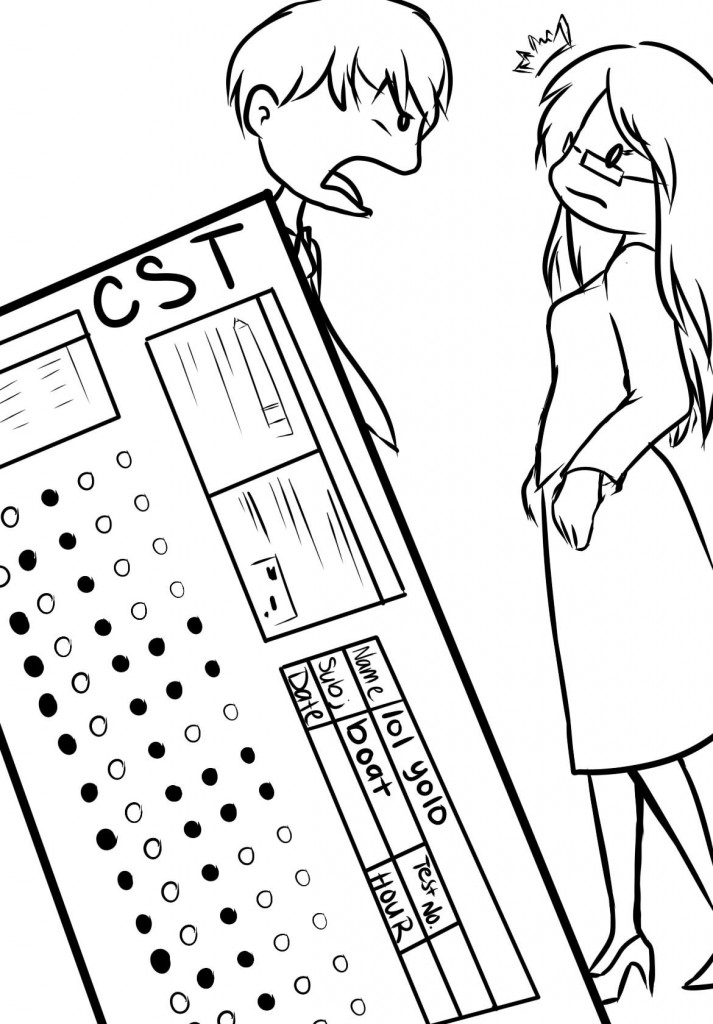Student evaluations needed to determine teacher efficacy, not standardized tests

 Districts across America are relying heavily on standardized test scores to evaluate teachers, especially districts that consistently do poorly on these tests. Without systemic problems on such tests, PVPUSD determines teacher efficacy by a more qualitative method. Our district uses five factors to more accurately assess teacher performance: teacher support for students, their ability to maintain effective learning environments, student understanding of the subject, effective lesson plans and personal growth. One factor is clearly missing from this progressive model: student evaluations of teachers.
Districts across America are relying heavily on standardized test scores to evaluate teachers, especially districts that consistently do poorly on these tests. Without systemic problems on such tests, PVPUSD determines teacher efficacy by a more qualitative method. Our district uses five factors to more accurately assess teacher performance: teacher support for students, their ability to maintain effective learning environments, student understanding of the subject, effective lesson plans and personal growth. One factor is clearly missing from this progressive model: student evaluations of teachers.
Student evaluations, a prominent part of college professor evaluations, provide valuable information so that teachers can provide students with better learning experiences. By catering to the students’ specific needs, teachers can better tailor their courses.
Student evaluations provide grass-roots data on teaching techniques. Schools like Stanford use such information to provide guidance to teachers. With the use of student evaluations, “the emphasis falls not on improving one’s teaching ‘performance’ but on making changes that will enable students to learn more effectively or efficiently,” Stanford University said in a released statement.
Some teachers conduct informal student evaluations at the end of the year. They use these to self-reflect on how their students perceived the efficacy of their teaching methods. However, most teachers on this campus do not offer their students the chance to give them constructive feedback.
The current evaluation system should not be completely abandoned. Our evaluation system is more meaningful than other districts that rely on standardized testing.
Truth be told, many students simply don’t take standardized testing seriously. Such tests often have no real influence on classroom grades. Schools that use standardized tests to evaluate teachers often receive an incorrect interpretation of a teacher’s performance. Schools that rely on standardized testing foster the incorrect rationale that the better students do, the better the teacher must be. While this generalization is the ideal, it is neither pragmatic nor realistic.
The district should be lauded for its evaluation methods. Still, the district should consider integrating student evaluations. Teachers that are not effective in the minds of their students are simply not effective.

